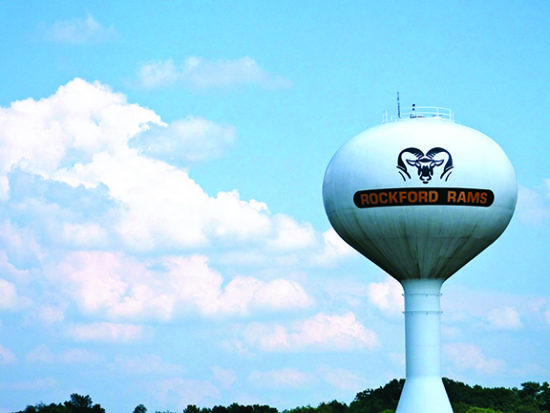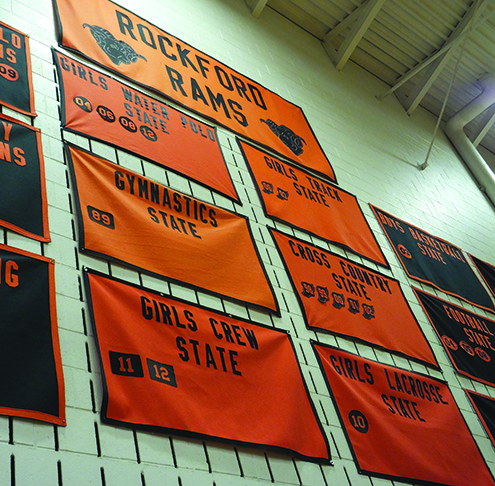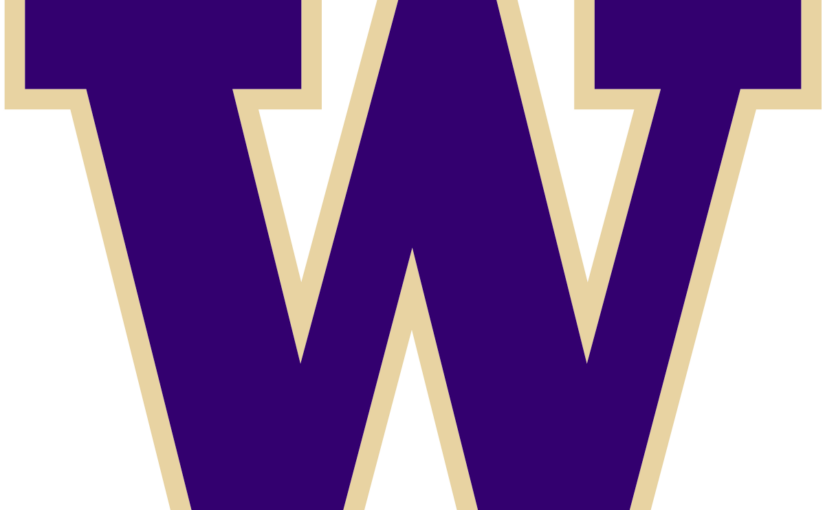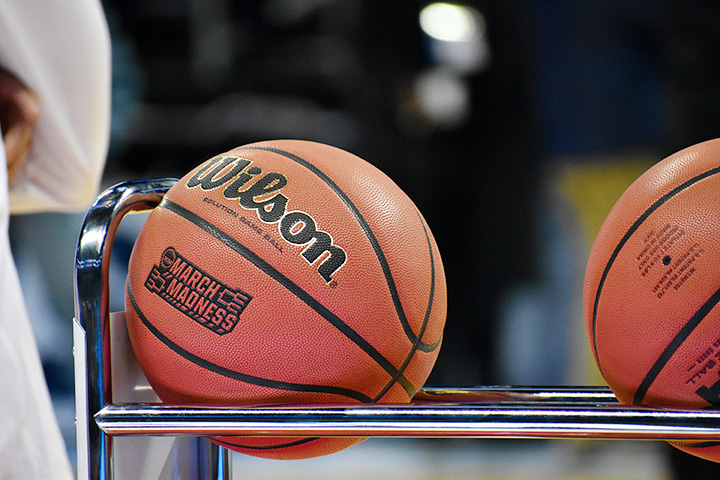Keeping Rockford High School’s winning tradition alive
Athletic Director Tim Erickson and coaches share what makes the program so special

The term “extracurricular” is frowned upon at Rockford High School. To some, there is nothing “extra” about them. They’re treated every bit as valuable as classroom education.
That type of mindset, and the administrators who created it, is why the school’s athletic program has become a model of achievement throughout Michigan. A high school sports program is only as good as those leading it, and as any coach in Rockford will profess, theirs couldn’t be in better hands than Athletic Director Tim Erickson.“Tim is an exemplary athletic director,” said Superintendent Mike Shibler. “It’s more of a lifestyle for him in that job, and I think that’s the way it is for most of us in the district who are in leadership roles.”
Shibler’s words couldn’t be more accurate. Last spring, Erickson participated in a practice with about 20 different teams, putting himself through the same rigorous drills as the student-athletes. He did it because he wanted to get back into shape while recovering from stage 3 throat cancer and to gain a new perspective on the school’s various athletic programs.
Erickson plans on doing the same later this year with the fall sports.
“One of my goals has always been to sit through a practice, and when you do that your cellphone rings or someone comes up to you and you’re easily distracted,” Erickson said. “So I thought, why don’t I just join practice, and that has become one of my administrative goals.”
Athletic administration is a natural fit for Erickson. He had already been an assistant principal within the district and he coached baseball, wrestling and football at various levels. He transitioned seamlessly into his new role, but he’ll never be the first person to take credit for what the school’s sports program has accomplished. Like a fine-tuned engine, it operates on the backs of many moving parts, and without one of them, the results wouldn’t be the same.
“The people here from the top down are very supportive of athletics, and our superintendent has been here a very long time,” Erickson said. “Many school districts have superintendents that come and go so you’re always trying to get acclimated to new people and a new system, but we’ve been fortunate to have some consistency. And they’ve been supportive of not just athletics but band and performing arts as well.”
Support structure
When the recession hit and budgets for high schools across the nation began to shrink, athletics were among the first to suffer. While some schools dropped sports programs to manage their finances, Rockford was adding new teams. Erickson and Shibler said it’s their goal to get as many students as possible involved, and new offerings are one of the ways they achieve that.
 Erickson said the athletic department budget is 1.2 percent of the district budget, and that doesn’t change. The school for a long time has instituted pay-to-play fees, which charge students $110 per sport with a $300 cap on families. That hasn’t been a detriment to participation, and Erickson believes that’s because parents see the educational value in high school athletics.
Erickson said the athletic department budget is 1.2 percent of the district budget, and that doesn’t change. The school for a long time has instituted pay-to-play fees, which charge students $110 per sport with a $300 cap on families. That hasn’t been a detriment to participation, and Erickson believes that’s because parents see the educational value in high school athletics.
“Everything we do has some educational aspect to it, and fortunately we have good students,” Erickson said. “They’re smart kids with good family support, our families are involved and the community is involved. The support has come from all over.”
That’s somewhat unique considering the number of school districts that have rocky relationships with parents. In some cases, pay-to-play only made things worse because parents feel it entitles their children to more playing time. Shibler and many coaches are quick to call it a “pay-to-participate” fee, as no athlete is ever guaranteed to see action.
Erickson admits issues do arise, but the partnership with parents is as strong in Rockford as it is any other school district. He believes that’s because coaches have a way of pulling parents closer to their programs instead of pushing them away. Teams find ways to get moms and dads involved and have a part in the child’s athletic experience.
“There are some coaches where if you ask them whether they want parents involved in their programs, they’ll flat out say no,” Erickson said. “Our coaches aren’t like that. They understand the parents’ role and how they want to get involved. That’s great because obviously with the funding situation, we have parents stepping up filling these volunteer duties.”
Erickson recommends athletic directors at other school districts follow suit. Parent involvement doesn’t have to result in arguments over playing time or issues over a coach’s methods. By establishing clear boundaries, there is a good chance coaches and parents can coexist without many of the typical problems.
“I don’t know exactly what bridges that gap for us, but it’s been part of the Rockford culture to have them involved,” Erickson said. “We want them involved and sometimes they have to be pulled back if they go too far. But overall it’s been a great partnership.”
Finding qualified coaches
Coaches at Rockford are well versed in their respective sports, but that’s not the only thing that makes them valuable. Erickson believes a thorough understanding of the fundamentals is secondary to being a good teacher that can relate well with student-athletes.
Erickson has hired a former basketball player to teach wrestling, and that coach went on to win a state championship. That’s because he possessed the leadership qualities necessary to teach and motivate high school athletes.
 “Above all, the relational capacity that a coach has and being able to mold young men and women into good people is what we want,” Erickson said. “I like to say without a doubt that our coaches have a great relationship with kids, their parents and they’re good communicators. All the things that go beyond the sport.”
“Above all, the relational capacity that a coach has and being able to mold young men and women into good people is what we want,” Erickson said. “I like to say without a doubt that our coaches have a great relationship with kids, their parents and they’re good communicators. All the things that go beyond the sport.”
The school has 84 contracted coaches, and Shibler said each one understands the expectations at Rockford High School. If those aren’t met, they’ll find someone better suited to lead the athletes both on and off the field of play.
“I’ve had situations where a coach did something inappropriate and they’re gone,” Shibler said. “There are certain expectations that we have, and I not only expect that of me but those who work for us. The coaches understand that.”
Using booster clubs
With athletic budgets under fire at most school districts, booster clubs are tremendous assets. Erickson regularly attends meetings and the group discusses various needs within the sports programs.
Even though Rockford’s athletic budget hasn’t been significantly cut, it’s never been very big. The booster club is often used to fill in the gaps or purchase training equipment. The one thing it doesn’t do is buy uniforms.
Booster club president Jim Scales said the greatest revenue generator each year is concession sales. He estimates the group raises as much as $130,000 on food and drink sales alone. They make an effort to sell at sporting events at all levels because they want the games to be an enjoyable experience for everyone in attendance. Meeting that goal means also having the best food.
Scales said the booster club pays a concession coordinator, who orders and stocks all the food. The group owns grills and refrigerators and everything is paid for out of the organization’s budget. Most of the concession stand volunteers are parents, and before Friday night football games some of the more committed volunteers show up as early as 4 p.m. to start grilling food.
“I think it starts with an attitude of cooperation and service,” Scales said. “Our administration gets the community involved in the school and it pays off. When you ask people to volunteer, they’re willing to do it because we got a good thing going on.”
Perhaps the booster club’s greatest achievement is its commitment to alleviating the financial burden of pay-to-play on some of the parents. Scales said the organization has a scholarship program that will cover the athletic department’s pay-to-play fee for any family in need. That costs the booster club about $10,000 each year.
“Everybody hates pay-to-play, but it’s a necessary evil,” Scales said. “I like the way Tim handles the scholarship program because it doesn’t embarrass anyone. We have no idea who the kids are. The athletic department just tells us they need a certain amount of money and we send them a check for it.”
Erickson believes the booster club’s involvement and its ability to rally dedicated volunteers has helped the district lure major state tournaments. He said the Michigan High School Athletic Association knows Rockford has great facilities, and when it hosts tournaments it’s going to run it with volunteers who treat people right.
“We even host the state cheer finals at a building outside of Grand Rapids,” Erickson said. “It’s not even our site, but they want us to run it and host it because they know the people we put in charge will do the right things to make it work.”





